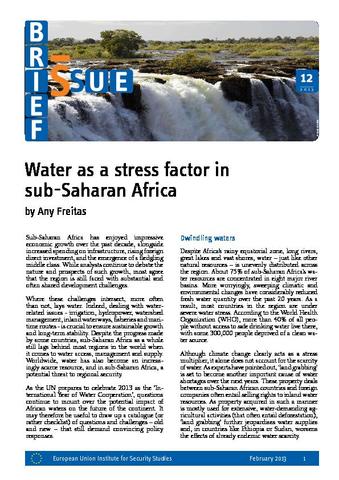You are here
Water as a stress factor in sub-Saharan Africa

Sub-Saharan Africa has enjoyed impressive economic growth over the past decade, alongside increased spending on infrastructure, rising foreign direct investment, and the emergence of a fledgling middle class. While analysts continue to debate the nature and prospects of such growth, most agree that the region is still faced with substantial and often shared development challenges. Where these challenges intersect, more often than not, lays water. Indeed, dealing with water-related issues - irrigation, hydropower, watershed management, inland waterways, fisheries and maritime routes - is crucial to ensure sustainable growth and long-term stability. Despite the progress made by some countries, sub-Saharan Africa as a whole still lags behind most regions in the world when it comes to water access, management and supply. Worldwide, water has also become an increasingly scarce resource, and in sub-Saharan Africa, a potential threat to regional security. As the UN prepares to celebrate 2013 as the ‘International Year of Water Cooperation’, questions continue to mount over the potential impact of African waters on the future of the continent. It may therefore be useful to draw up a catalogue (or rather checklist) of questions and challenges – old and new – that still demand convincing policy responses.